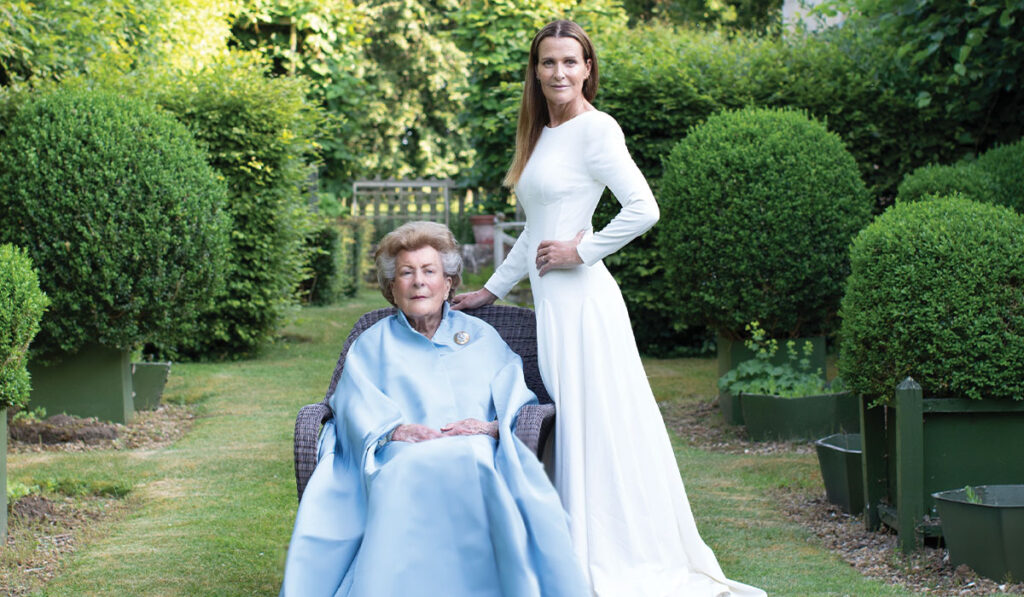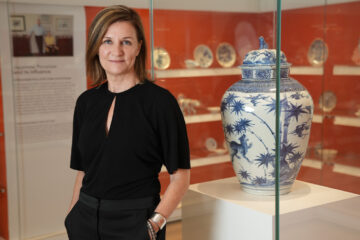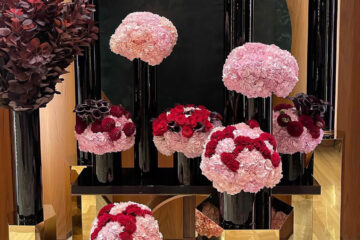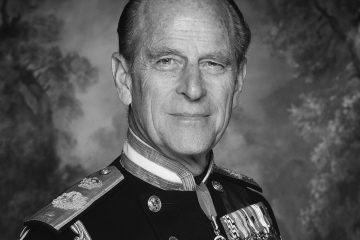India Hicks: A Tribute To Her Beloved Mother, Lady Pamela
At 95, Lady Pamela Hicks’ life in the shadows is brought to light by daughter India Hicks in her new memoir, Lady Pamela.
An extraordinary life of great privilege and tragedy has been the lot of the daughter to the Viceroy of India, lady- in-waiting to the Queen, and wife of David Hicks, Lady Pamela Hicks. From what seems like a front- row seat to some of history’s most defining events, we learn about the story of her extraordinary life as chronicled in India’s newest book, Lady Pamela, told through the Hicks family archives of handwritten letters, newspaper clippings and photographs.
It is through this beautifully visual personal history that we learn about Pamela’s experience being present at a prayer led by Gandhi, the assassination of her father in Ireland by the IRA during The Troubles and about her mother’s remarkable contributions toward Indian independence, and even more poignant episodes are included. To pay homage to such an exemplary life, India dedicated two years of her life to writing Lady Pamela.
As part of India’s global book-talk tour, Dolce had the honour to sit down with the proud author, designer, entrepreneur and its Summer’22 cover star in Toronto’s Hazelton Hotel in Yorkville to discuss the power of storytelling, the lessons she’s learned from her mother and how a privileged life isn’t what it may appear to be.
As I sat across from India, both of us took deep breaths and smiled. It was a moment of genuine warmth as she reflected on her return to Toronto. For her, being back felt particularly special this time, as she was accompanied by those who are dearest to her heart.
There is no doubt that the launch of her book was a deeply personal milestone, and she was eager to share her book with the world. Aiming to launch it in as many countries and cities as possible, she noted that Canada was an obvious choice. As the cherry on top, Yorkville’s beloved Teatro Verde provided the perfect setting for the signing event, drawing a large crowd excited to celebrate the launch of Lady Pamela. The evening was further elevated by the generous sponsorship of Maison Perrier-Jouët, whose elegant Champagne added the perfect festive touch to the celebration.
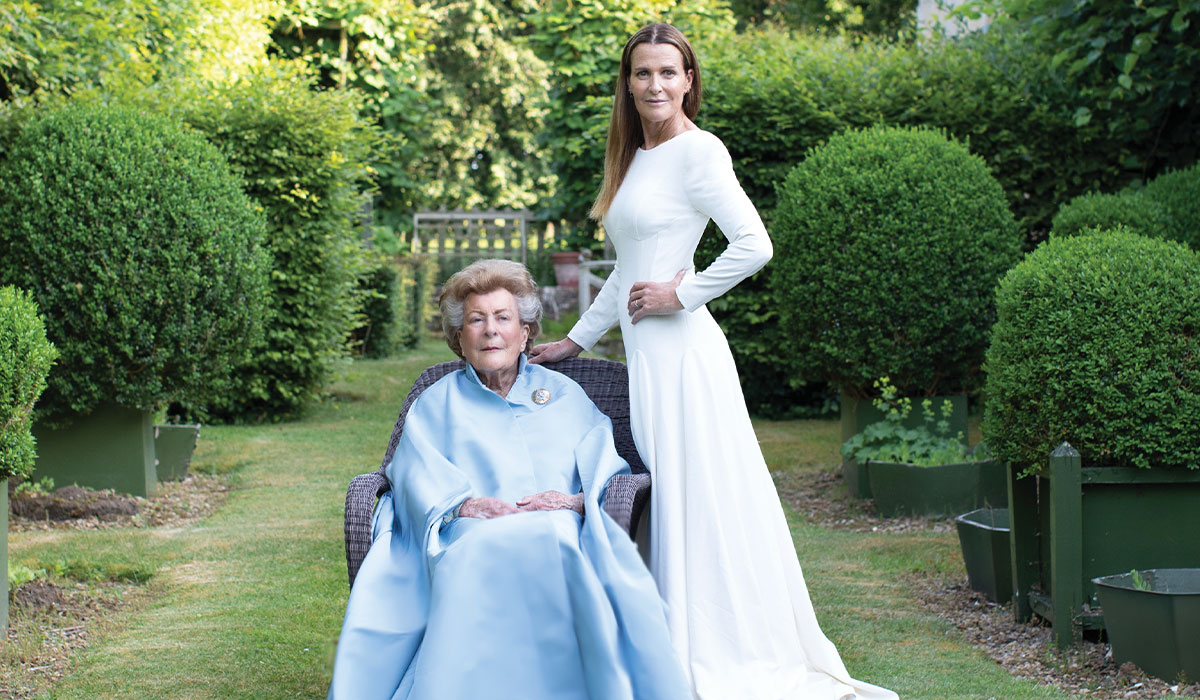
India and her mother posing in Pamela’s vibrant, lush garden (2023) | Photo Courtesy Of India Hicks
Q: When you look back on your childhood, and in doing the research for the book, did it put some things into perspective for you, like maybe how your mother raised you? Were there certain life lessons that she drilled into you while growing up?
A: Oddly, the way I was brought up is very different from the way I’m bringing my children up. My mother was of a generation and a time when it was very acceptable that she wasn’t necessarily a very hands-on mum. Her mother most certainly wasn’t a hands-on mum.
But I’ve been very hands-on although I’ve had a career, and I’ve very much focused on making sure that I was a working mum. So, it’s very different in the way that we’ve seen our mothering skills. But my mother and I are very similar as characters. We share a sense of adventure. We love to travel. We have the same sense of humour. So there are definite similarities. I ask her what she thinks is the most important lesson, and she says, “Duty and service,” which are two words we don’t hear much anymore. And I think I’ve been lucky enough to have inherited the idea that duty and service are important.
Q: How do you hope the theme and the overall storytelling of Lady Pamela resonates with the reader? What is the most important takeaway?
A: I think the most important takeaway for the reader is that this is a very unique life, and it’s a disappearing world. The Commonwealth tour that my mother was on was huge and very important. Our late Queen fundamentally believed in the Commonwealth. She thought there was nothing stronger than a unity of countries voluntarily coming together. Imagine how powerful that is. Of course, now, royalty is changing and the monarchy is modernizing. And so, we’re seeing tours on a different scale than they were. And that probably is right for the modern world. But when my mother was there in 1952–1953, it was an outstanding experience to go on that Commonwealth tour and see the world through those eyes.
Q: In what ways did writing Lady Pamela change your life once it was released?
A: I think authoring this book makes me feel that I’ve sort of put a full stop at the end of a sentence. I’m pleased I’ve done it, and I’m pleased my mum is still here to see it. And to realize that her life has amazing moments of historical relevance, and that only she has seen that. And we’ve captured that in the book. But it’s also … it’s very light- hearted. And it’s just a beautiful documentary of someone’s life that we’ll never see again. It’s a disappearing world.
Q: Was it difficult to include the family tragedy in the book, especially considering it might affect your mother’s view of the story?
A: You ask a very good question about the chapter that I included about the IRA — “Murder of My Grandfather” — in a book that is a light-hearted illustrated biography. But it was important to me that we captured that because I think people otherwise don’t understand that even though you come from a background and have a very privileged life — we’ve used that word several times — there is tragedy. It’s how you deal with that tragedy, and this particularly was important. It was a political assassination. I was 11 years old. I’d never heard those words before. I was there on holiday with my grandfather when he was murdered. It was a very confusing time, not only for me as an 11-year- old but also for our family. How to deal with grief, how to make life go forward, how to accept what had happened.
And my aunt lost more than anybody. She lost not only her father, but she also lost her mother- in-law and she lost one of her twin sons. She said, “We will not let this hold us back. We will not have a life that is led by bitterness.” And it was brilliant because it really set the pace, that as a family we moved forward from this. We accepted what had happened. It was appalling, but we would move forward from it.
And I think that was important to include in the book because it definitely brushes up against this idea that it was a perfect and easy life that my mother had led.
Q: What do you admire most about your mother?
A: I think it’s, again, quite a lesson to our generation, to my generation and the generations below me. We are slightly a snowflake generation. We do get a little bit over-emotional. And my mother’s generation had lived through a war, so they’re a little bit unemotional in some ways, but they are a tough generation who’ve seen a lot, and they get on with things, and they move forward. And I think that is important. You know, my mother always remembers her cousin Prince Philip, the Queen’s husband, who would say, “Look up, look out, say less and do more.” And I think that’s brilliant.
Q: What is your version of la dolce vita, the sweet life?
A: You know, it’s wonderful to be sitting here and being interviewed again for Dolce because I’ve been here before, but many years ago, and I’m now 57. Oh, my goodness! And I find life more exciting than ever — there are opportunities that are presenting themselves that I am grabbing, and I’m excited by life. So I would say the sweet life, the good life, is all about grabbing those opportunities and making life exciting for yourself. Moving forward, no matter what age and what stage you are in life.











































































